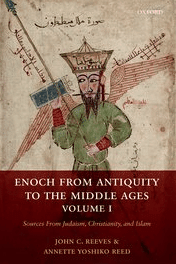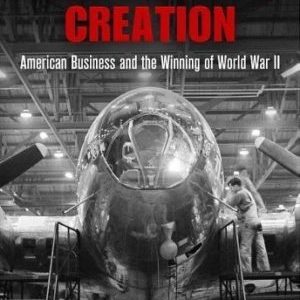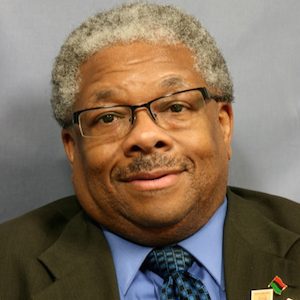Ink

College Authors Explore Tenets Of Government, To Educate And Inform
From an unprecedented look at what has been called the Gifted Generation, to a behind the scenes review of the costs and benefits of hosting major political party conventions, to an exploration of the factors that prompt citizens to reject public policies that appear to give them exactly what they want, College of Liberal Arts & Sciences faculty have published an array of books that pull back the curtain on government topics that affect citizens’ lives.

Religious Studies Professor Publishes Enoch Volume
John Reeves, Blumenthal Professor of Judaic Studies, and Annette Yoshiko Reed of New York University have published a work they hope will provide historians of religion with a new tool to explore the intertextual relationships between different religious corpora and the intertwined histories of the major religious communities of the ancient and medieval Near East.

Historian Compares Treatment of Nomadic People by U.S., Russia
Historian Steven Sabol’s new book is a happy coincidence of fly-fishing and history. During a 2006 fishing trip to trout-filled Nez Perce Creek in Yellowstone National Park, Sabol spied a sign with tantalizing details about the flight of the Nez Perce through the park in the 19th century. The sign set Sabol on a comparative history journey exploring the treatment of nomadic people by two empires – the U.S. and Russia.

English Professor Bryn Chancellor’s Debut Novel Wins National Acclaim
UNC Charlotte author Bryn Chancellor’s debut novel, Sycamore, has earned critical acclaim on the national stage, lauded as a riveting tale of how a teen-age girl’s mysterious disappearance has haunted her Arizona hometown and how the discovery of her remains leads to unexpected healing and forgiveness.

Historian’s Book Offers Fresh Look at Business Role in World War II
In his acclaimed book, Destructive Creation: American Business and the Winning of World War II, research by UNC Charlotte history professor Mark Wilson offers a fresh and fascinating look. During World War II, the United States transformed its massive economic capacities into military might, which proved critical to winning the war against the Axis powers.

Scholar’s Book Analyzes Freedom, Citizenship In Study of Black Militia
History professor Gregory Mixon’s new book analyzes one state’s process of freedom, citizenship and the incorporation of African Americans within the political and economic structure of the United States after the Civil War. “Show Thyself a Man: Georgia State Troops, Colored, 1865-1905” explores how both independent militias and state-sponsored militias defined freedom and citizenship for African Americans.

To Kill A People: Cox’s Book Considers Genocide in 20th Century
Throughout history, governments and armies have conspired to brutally wipe out entire groups of people through mass murder and the destruction of social and cultural structures, in an ancient practice that since World War II has been labeled by the term genocide. UNC Charlotte’s John Cox offers a new perspective on the meaning and significance of genocide in his book, “To Kill a People: Genocide in the Twentieth Century.”

Book Brings Geographic, Spatial Dynamics Data Into Disease Planning
When the threat of disease looms, analyzing its geographic and spatial dynamics might not spring to mind as a priority. However, a new book co-edited by UNC Charlotte researcher Eric Delmelle suggests that such analysis should move up the list of significant issues to consider.

New Work Unites Sustainability Issues, Early Modern Literature
In a work that unites early modern literature and sustainability issues, UNC Charlotte researcher Jennifer Munroe has released a new co-edited collection of essays, Ecological Approaches to Early Modern Texts: A Field Guide to Reading and Teaching.

Historian Receives Midwestern History Association Prize for Best Book
UNC Charlotte historian Aaron Shapiro has received The Midwestern History Association’s annual Jon Gjerde Prize for the best book on a Midwestern history topic for his book “The Lure of the North Woods: Cultivating Tourism in the Upper Midwest.”